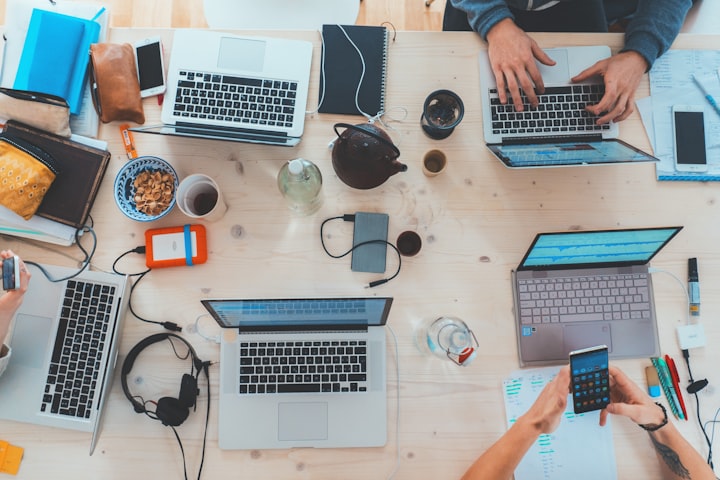Learning and Unlearning
Embracing Growth Through Knowledge Evolution
Introduction to Learning and Unlearning
In the dynamic landscape of personal and professional development, the concepts of learning and unlearning have become increasingly significant. Learning is the process of acquiring new knowledge or skills, while unlearning involves letting go of outdated beliefs or behaviors. Both are essential for adaptation and growth in a rapidly changing world.
The Nature of Learning
Learning is a fundamental aspect of human cognition, occurring through various mechanisms such as observation, experience, and instruction. It encompasses formal education, informal experiences, and self-directed exploration. Types of learning range from rote memorization to conceptual understanding, with each serving its purpose in different contexts.
The Importance of Continuous Learning
Continuous learning, also known as lifelong learning, is crucial for personal and professional development. It enables individuals to adapt to evolving circumstances, stay relevant in their fields, and foster innovation. Successful individuals understand the value of continuous learning and actively seek opportunities to expand their knowledge and skills throughout their lives.
The Need for Unlearning
While learning is essential, unlearning is equally important. Unlearning involves challenging existing beliefs, assumptions, and habits that may no longer serve a purpose or hinder progress. It requires humility and openness to change, as well as a willingness to let go of familiar but obsolete ways of thinking and behaving.
Challenges of Unlearning
Unlearning can be challenging due to cognitive biases, emotional attachments, and ingrained habits. The fear of uncertainty and the discomfort of letting go of familiar patterns can impede the unlearning process. Overcoming these challenges requires self-awareness, resilience, and a growth mindset.
How to Facilitate Unlearning
Facilitating unlearning involves creating a supportive environment that encourages exploration, experimentation, and reflection. Strategies such as mindfulness, feedback-seeking, and cognitive restructuring can help individuals overcome resistance to change and embrace new perspectives. Additionally, fostering a culture of psychological safety and learning from failure can promote a more open-minded approach to unlearning.
The Intersection of Learning and Unlearning
Learning and unlearning are not mutually exclusive but rather interconnected processes that contribute to personal growth and development. Balancing the acquisition of new knowledge with the willingness to question and reevaluate existing beliefs is essential for intellectual curiosity and adaptability. Embracing both learning and unlearning allows individuals to evolve continuously and thrive in an ever-changing world.
Case Studies
Numerous examples illustrate the transformative power of learning and unlearning. From companies that pivot their business models to individuals who reinvent themselves in new careers, those who embrace both processes demonstrate resilience, agility, and a commitment to lifelong learning.
Conclusion
In conclusion, learning and unlearning are integral components of personal and professional growth. By cultivating a mindset of curiosity, flexibility, and self-reflection, individuals can navigate the complexities of a rapidly changing world with confidence and resilience. Embracing both learning and unlearning as lifelong habits empowers individuals to adapt, innovate, and thrive in any endeavor.
FAQs (Frequently Asked Questions)
Why is unlearning important?
Unlearning allows individuals to shed outdated beliefs and behaviors, making room for new ideas and perspectives. It fosters adaptability and innovation in an ever-changing world.
How can I overcome resistance to unlearning?
Overcoming resistance to unlearning requires self-awareness, openness to change, and a willingness to challenge ingrained habits and beliefs. Seeking feedback, practicing mindfulness, and embracing a growth mindset can facilitate the unlearning process.
Is it possible to learn new things while unlearning old habits?
Yes, learning and unlearning are interconnected processes that can occur simultaneously. Embracing new knowledge and perspectives often involves letting go of outdated beliefs and behaviors.
Can unlearning be painful?
Unlearning can be uncomfortable or challenging, especially when it requires confronting deeply held beliefs or habits. However, it is an essential part of personal growth and adaptation to change.
How can organizations promote a culture of learning and unlearning?
Organizations can promote a culture of learning and unlearning by fostering psychological safety, encouraging experimentation, providing opportunities for feedback and reflection, and rewarding innovation and adaptability.
About the Creator
Muhammad Hashim
As a professional blogger working in health and fitness, I'm dedicated to providing valuable insights and actionable tips to help my readers achieve their wellness goals. Join me on the journey to a healthier and happier life!







Comments
There are no comments for this story
Be the first to respond and start the conversation.